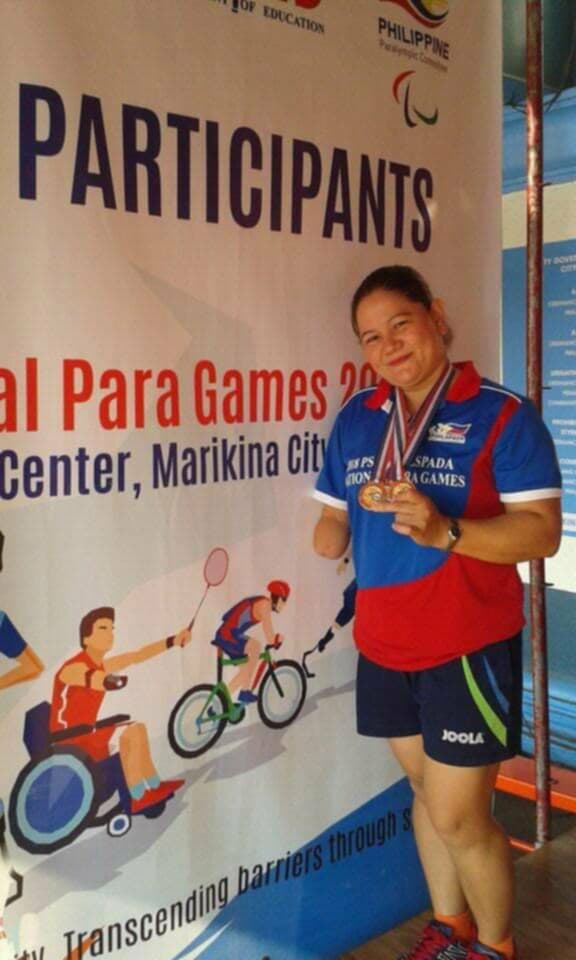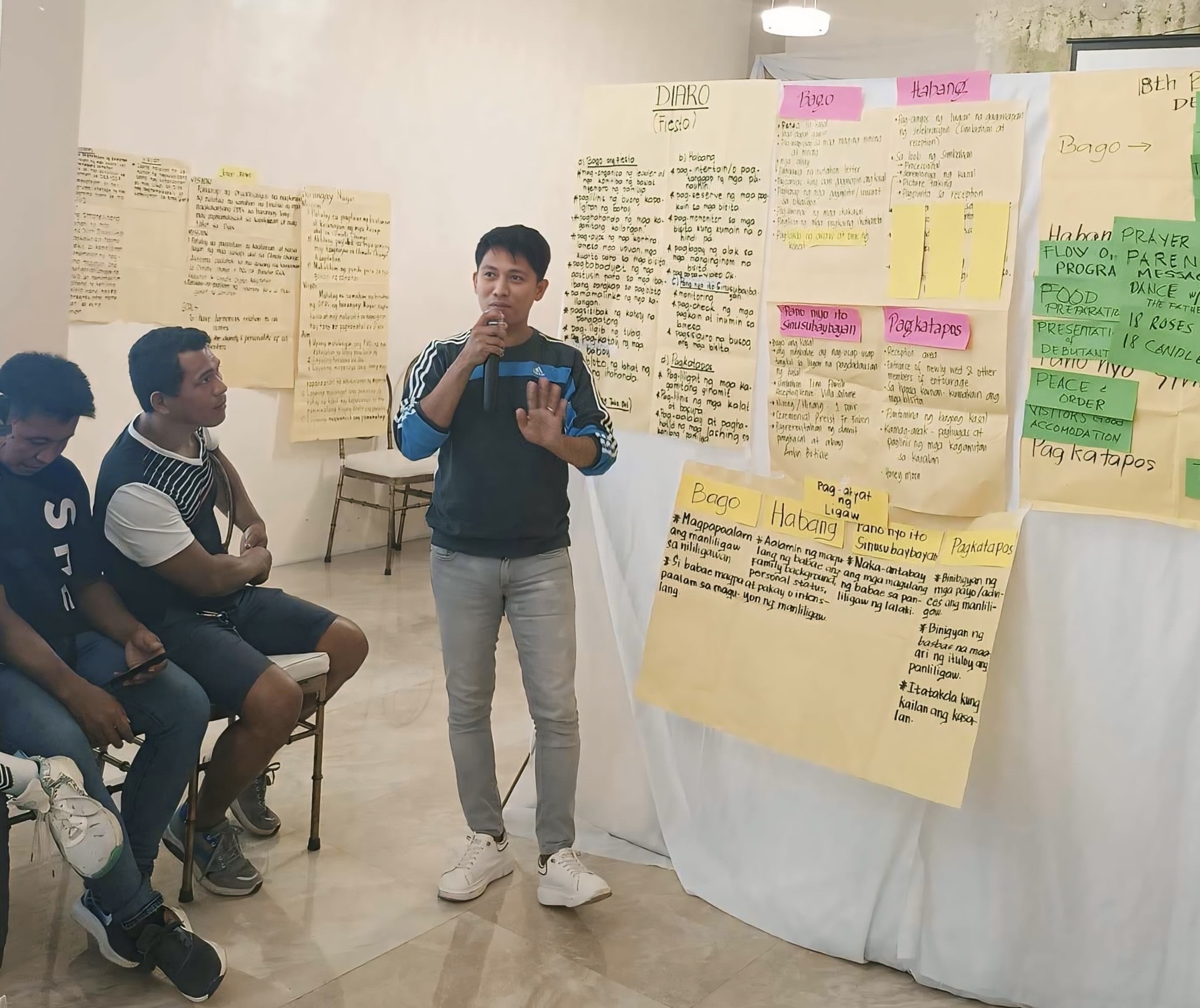Leave No One Behind: ensuring people with disabilities are included in Covid-19 responses
Covid-19, Stories | February 28, 2022
“The COVID-19 pandemic has brought home and highlighted the ever-widening gap between the haves and have nots. Unless this is addressed, people with disabilities will be further left out of the response.
“We, people with disabilities, need a seat at the table, to lead in the policy and decision-making that will ensure that people with disabilities are able to recover from COVID-19 and create a world where we can participate fully.” Setareki Macanawai, CEO, Pacific Disability Forum.
When disaster events and complex emergencies strike, people with disabilities already living in poverty are ignored. And Covid-19 is no different, according to a new paper released by peak body, the Australian Disability and Development Consortium (ADDC) and world leaders in disability inclusive development, CBM Australia.
CBM Australia CEO Jane Edge says the Covid-19 pandemic is having a catastrophic impact on people with disabilities. “People with disabilities have lost income at a greater rate than people without disabilities; many can’t get enough food to eat or access to health services – much less protect themselves from the virus.”
As well as experiencing significant barriers to immediate supports, people with disabilities can also be neglected or overlooked in disaster response planning.
Throughout the Covid-19 pandemic, CBM Australia, with funding from the Australian Government, has conducted research with Organisations of Persons with Disabilities (OPDs) in Asia, the Pacific and Africa.
Despite about 80 per cent of people with disabilities around the world living in low and middle-income countries, the research has concluded that people with disabilities have been disproportionately impacted by COVID-19 and will be further left behind unless specific efforts are made to ensure responses are disability inclusive.
“Poorer health outcomes, increased experience of violence and abuse and reduced access to education and social supports have been some of the key challenges people with disabilities have faced over the past 18 months,” ADDC Executive Officer Kerryn Clarke says.
A new discussion paper, Leave No One Behind, outlines some of the direct barriers people with disabilities and the organisations that support them have experienced.
This ranges from systemic problems – such as people with disabilities not being prioritised in early phases of Covid-19 vaccine programs – to the widespread reporting of increased psychosocial distress among people with disabilities.
In countries such as Vietnam, the Philippines and Indonesia, most survey respondents had not received adequate income support despite the impact of Covid-19 lockdowns and restrictions.
As the pandemic continues to have a significant impact on all aspects of life, CBM and the ADDC say that a comprehensive and coordinated approach – involving governments, OPDs, health departments and the broader community – is needed.
This would support work to identify and address barriers for people with disabilities throughout all steps of the Covid-19 response, including public health messaging and the accessibility of vaccines. To be as effective as possible, this work should be done in partnership with OPDs and people with disabilities themselves.
The vaccine rollout underway in our region must also address the specific barriers experienced by people with disabilities, including fully accessible vaccination facilities, access to accessible transport and ensuring health information is provided in formats such as braille and sign language.
The discussion paper also recommends a strategy that clearly articulates how people with disabilities should be prioritised in Australia’s aid program. “More must be done to prioritise and protect people with disabilities in our region in our COVID-19 responses and vaccine rollouts. Urgent action is needed now before it’s too late,” the report states.
Fast facts
- In surveys across Vietnam, Indonesia, and the Philippines, most respondents (>85%) affected by COVID-19 lockdowns were yet to receive financial assistance.[1]
- People with disabilities reported as much as 65% of their household income lost due to COVID-19 in Bangladesh and 52% in Cambodia.[2]
- Most surveys reported an increase in psychosocial distress among people with disabilities; and that COVID-19 is not being addressed as a mental health issue.[3]
- People with disabilities are not being prioritised in COVID-19 prevention efforts or early phases of vaccine roll-out, despite their high vulnerability.
- OPDs, people with disabilities and their carers are not being consulted or provided with information about COVID-19 in a timely, accessible, or proactive manner.
- A lack of meaningful inclusion of people with disabilities in the planning of COVID-19 responses, both at national and global levels.[4]
[1] UNDP Viet Nam. 2020. Rapid Assessment of the Socio-economic impact of COVID-19 on persons with disabilities in Vietnam
[2] Ibid
[3] Ibid
[4] Brennan, C. 2020. Disability rights during the pandemic: A global report on findings of the COVID-19 Disability Rights Monitor
https://www.cbm.org.au/stories/leave-no-one-behind-covid-19-responses
Related Stories

Aiming for gold and championing the rights of people with disabilities
Minnie, a 40-year-old mother of two and Treasurer of...

Jay’s journey: from hiding his disability to advocating for change
Jay, a 31-year-old hairdresser from the Philippines and father...

The Blessed Life
Mary learnt the depths of the implications of living the blessed life. The angel Gabriel had told Mary that she was going to be pregnant with the Son of God....
